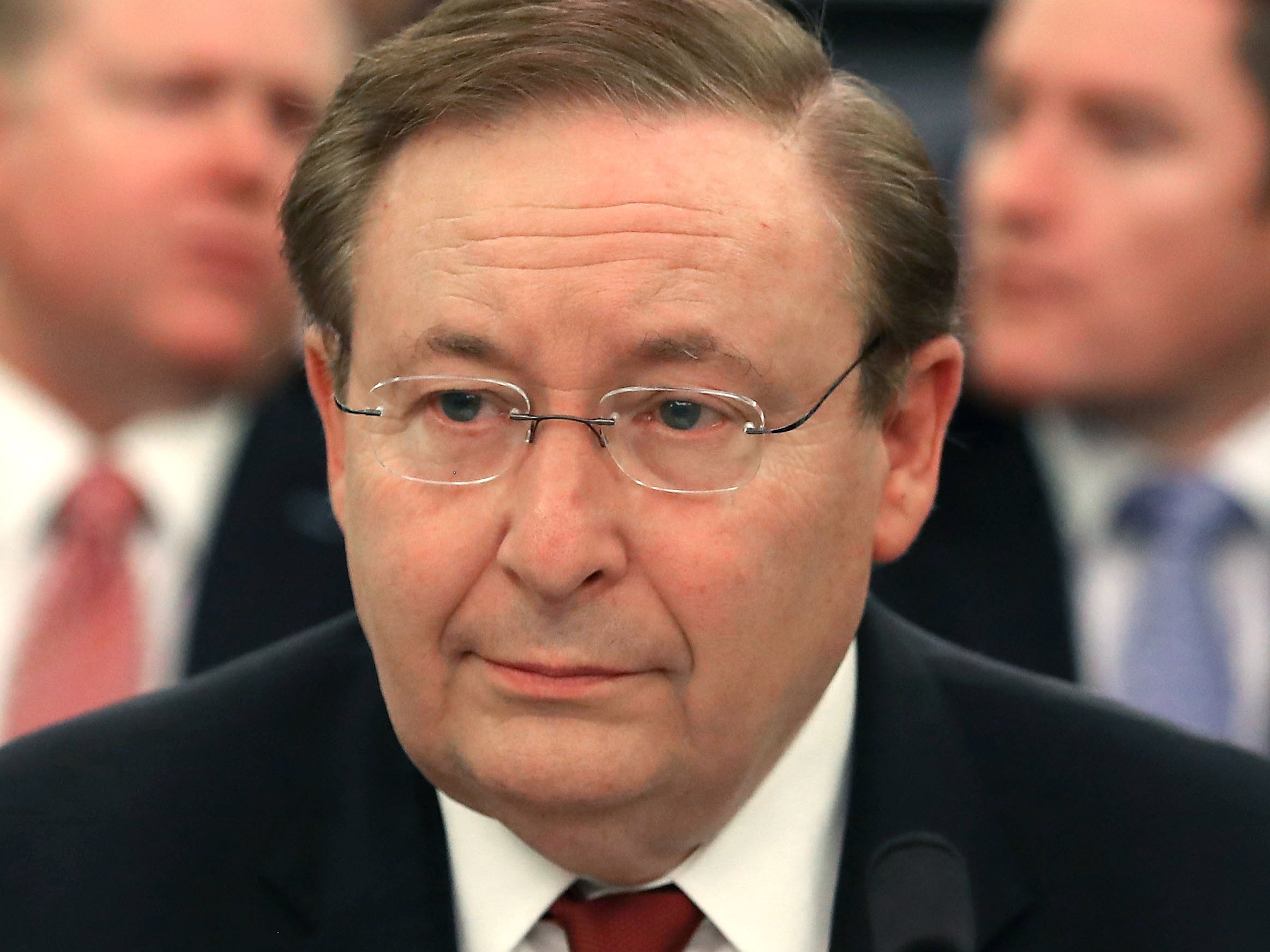Trump's pick to be new NOAA environment chief pulls out
Nominee has ‘undergone surgery and chemotherapy treatments for cancer’

Barry Myers, Donald Trump's controversial nominee to lead the National Oceanic and Atmospheric Administration (NOAA), has withdrawn from consideration due to health concerns, an administration official has confirmed.
Mr Myers' nomination had languished in the Senate since it was first announced in November 2017, due in part to conflict of interest concerns regarding his family's continued ownership stake in AccuWeather, the private weather forecasting company he led until stepping down on 1 January.
Mr Myers' decision to withdraw his nomination from consideration was first reported by the Washington Times.
The nominee told the Times that he had undergone surgery and chemotherapy treatments for cancer and wrote to the White House this week asking that his nomination be withdrawn.
Prior to his nomination, Mr Myers had served as the CEO of AccuWeather since 2007.
AccuWeather has had a history of advocating for expanding the role of private forecasting companies at the expense of the taxpayer-funded National Weather Service, which is part of NOAA. Concerns had also been raised regarding AccuWeather's record of sexual harassment lawsuits and settlements during Myers' time at the company.
While Mr Myers was CEO, AccuWeather agreed to pay $290,000 (£224,000) as part of a sexual harassment settlement involving a federal oversight agency, which found the company subjected female employees to harassment and a hostile work environment.
The settlement covered a period from 1 January 2014 to 21 December 2017.
Mr Myers stepped down as CEO of AccuWeather on 1 January this year, and agreed to divest himself of any company ownership as part of an ethics pledge to the US Office of Government Ethics. However, his brother, Joel Myers, is founder and president of AccuWeather.
Given NOAA's role as a weather, climate, and fisheries research and regulatory agency, NOAA administrators typically come from scientific backgrounds, such as oceanography. Under President Barack Obama, for example, NOAA was led by prominent researcher Jane Lubchenco and then Kathryn Sullivan, a geologist who was the first American woman to walk in space.
Ms Lubchenco, Ms Sullivan, and D James Baker, NOAA administrator under former president Bill Clinton, all had opposed Mr Myers' nomination. Conrad Lautenbacher, NOAA administrator under President Bush, supported Mr Myers.

Mr Myers' nomination had twice been favourably reported out of the Senate Commerce, Science and Transportation Committee, but was never brought up for a floor vote.
NOAA, which has responsibilities stretching from the seafloor to low Earth orbit, has now gone through the entire Trump presidency-to-date without a presidentially appointed administrator. This is the longest-such period in the agency's history since it was created within the Commerce Department in 1970.
The agency is currently being led in an acting capacity by Neil Jacobs, who has a scientific background in weather forecasting and computer modelling.
The normally-scandal free agency was the subject of worldwide headlines in September during Hurricane Dorian, when Mr Trump falsely stated that the storm was going to severely impact Alabama. In response to phone calls from worried residents, the National Weather Service forecast office in Birmingham tweeted that the region would not be affected by the storm, but the White House pressured NOAA to issue a statement admonishing those forecasters.
The Commerce Department's inspector general is currently investigating the matter in part due to concerns about political interference with a scientific agency.
The House Science Committee is conducting its own inquiry, as is NOAA's chief scientist.
The Washington Post
Join our commenting forum
Join thought-provoking conversations, follow other Independent readers and see their replies
Comments
Bookmark popover
Removed from bookmarks